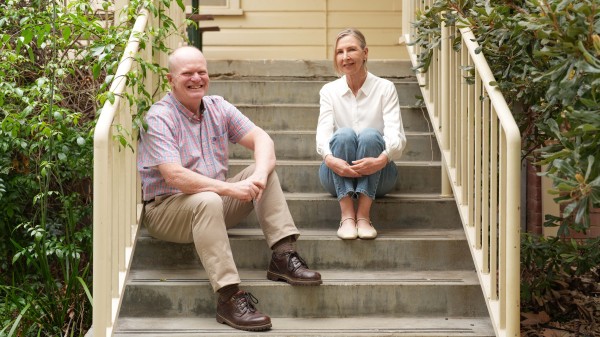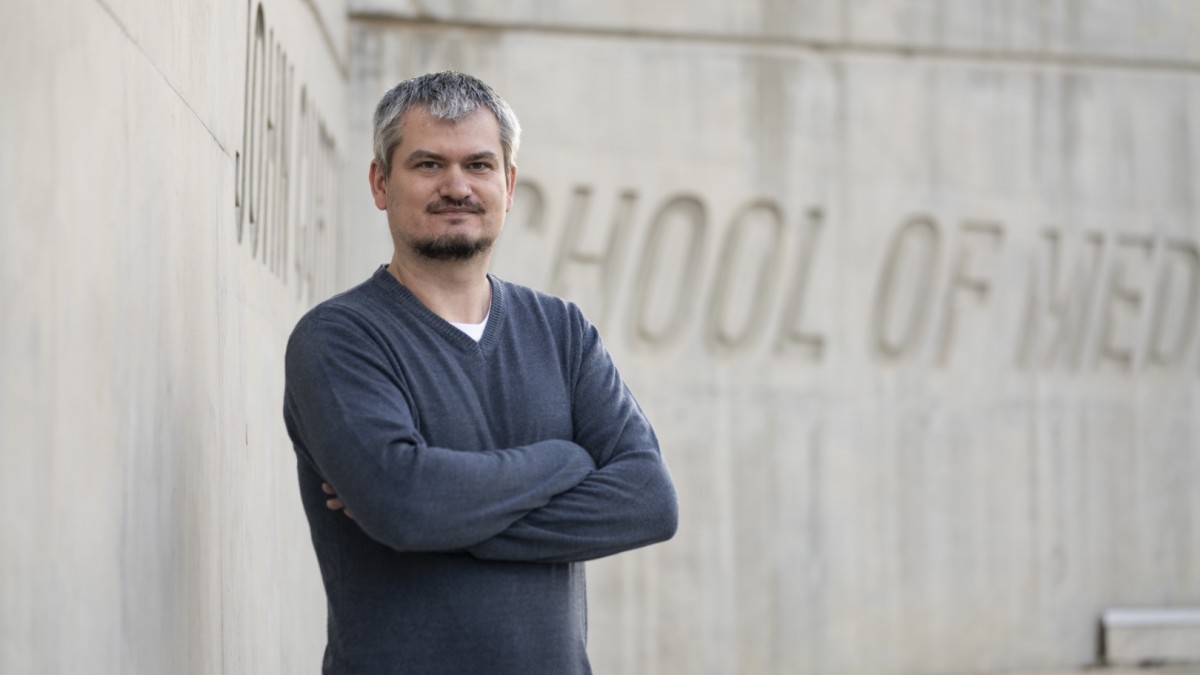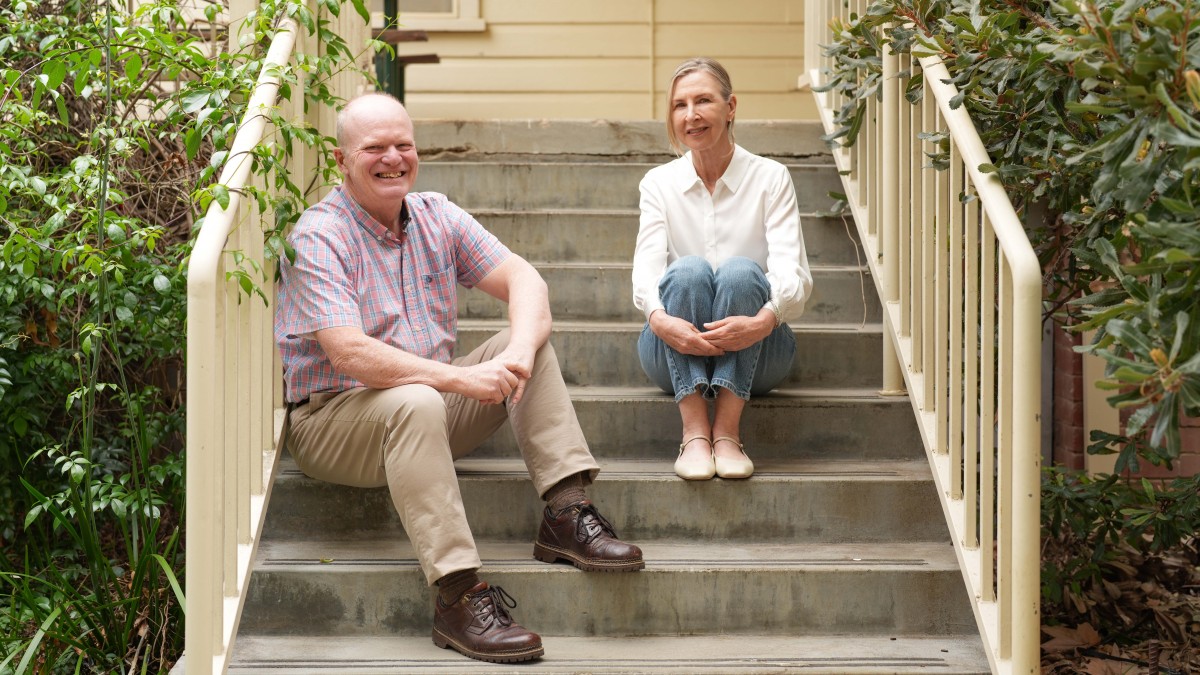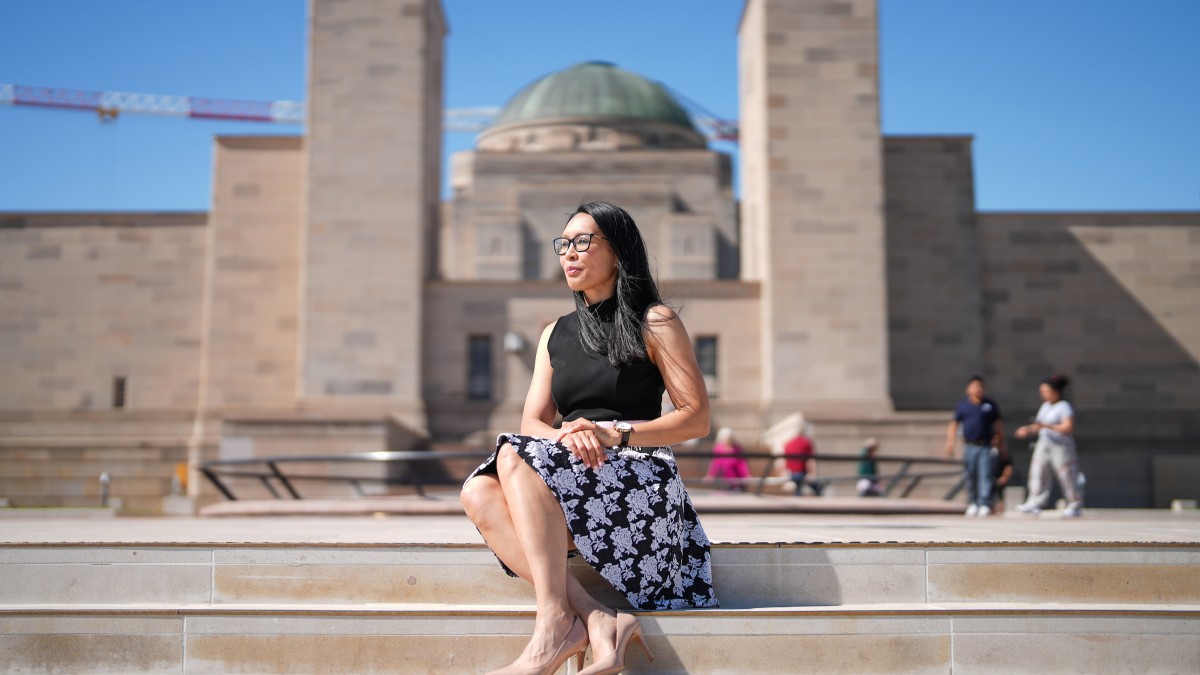When Dr Nikolay Shirokikh communes with nature, he doesn’t need to go hiking, or camping, or even fishing.
“I like to talk to nature and ask questions,” he says, referring to model cells in a medical research laboratory.
“The key is not to miss the answers.”
Dr Shirokikh, a researcher at the ANU John Curtin School of Medical Research (JCSMR), has spent his career talking to cells about how their genes are translated into proteins with the help of a molecule called RNA.
This process, where an RNA copy of a section of your genome is used to build proteins, is so fundamental to life, that there wouldn’t be any life on Earth without it.
“It’s the step where genetic information comes alive,” Dr Shirokikh explains. “But we still lack a complete understanding of how it actually works.
“I am interested in what happens when things go wrong. What happens when cells become stressed?”
Cell stresses, including some drug treatments, can damage cells and their DNA. This impact can be seen in the many terrible side effects of chemotherapy.
“I am trying to find additional ways to help healthy cells withstand stresses, while removing malignancies.
“By solving biological problems, we can help improve the lives of many people.”
Dr Shirokikh began his research career in Russia, moving to Australia after hearing about Professor Thomas Preiss’s research at a conference. “I thought, that sounds like exactly what I want to do.”
Despite his enthusiasm, Dr Shirokikh understands the frustrations of pursuing a research career.
“The length of time from having an idea to being able to share it with the public can be challenging,” he says.
“It’s like summiting Mount Everest, except you have all the pictures and evidence but you have to wait five years before you can share it with anyone,” he says, referring to the time it takes from having an idea, to getting it funded, to publishing your finding.
“By the time you can share your findings, the excitement of having reached the top might have worn off. These frustrations are especially challenging for early-career academics.”
On top of this, not everyone starts their ascent at the same place, or even climbs the same mountain.
Building a better path for current and future researchers is exactly what motivated Dr Shirokikh to join the ANU College of Health and Medicine (CHM) Research Committee.
“I am passionate about improving the research environment for early to mid-career academics,” he says. “I am grateful that CHM is looking for ways to grow and develop and am excited to be a part of these changes.”
Even with the challenges of research, Dr Shirokikh expressed the gratitude he feels every day for the chance to pursue his ambitions in the supportive and collaborative environment at JCSMR.
“Being part of the research community at JCSMR is the best thing that ever happened to me.”
Dr Shirokikh says that talking to nature and encouraging curiosity to understand the fundamentals of science needs to be protected to drive technological innovation.
“Trying to solve medical problems is very satisfying, but it cannot substitute basic science. I am truly lucky to have an opportunity to work on both.”
Dr Nikolay Shirokikh is a molecular biologist and an early to mid-career academic (EMCA) at the John Curtin School of Medical Research (JCSMR). He is a Group Leader in the Genome Sciences Department of Australia’s national medical research institute.










